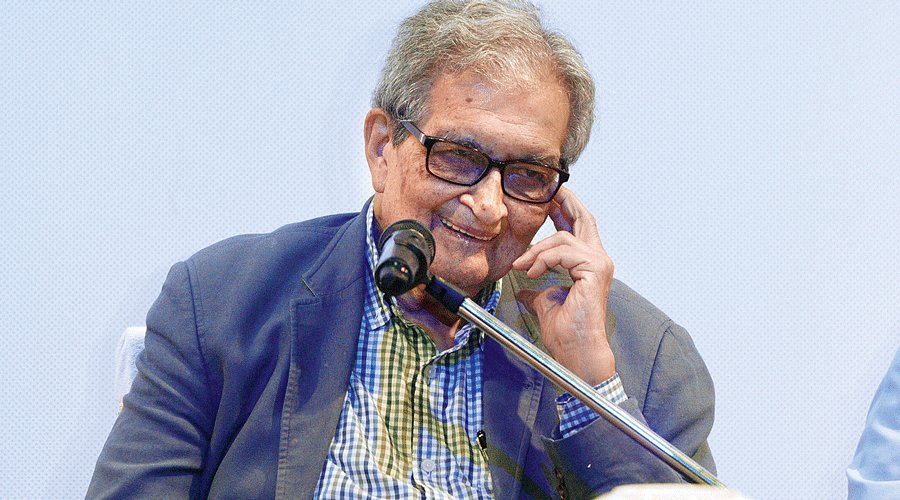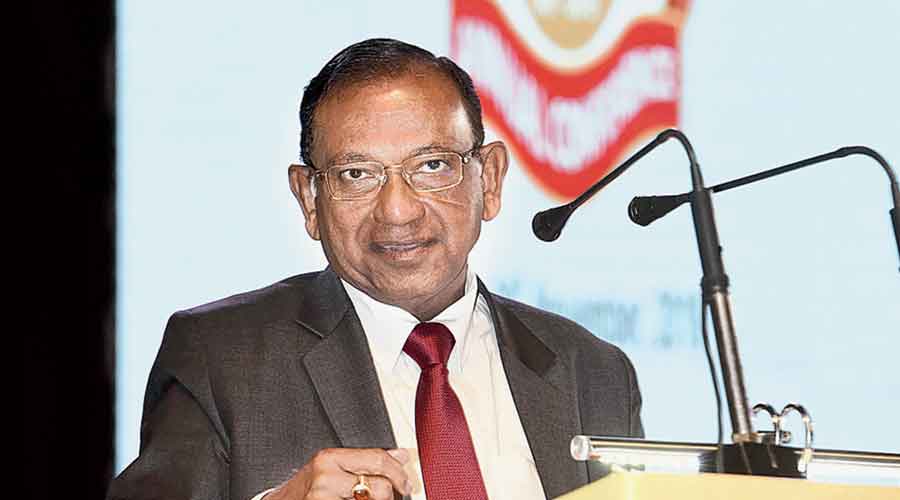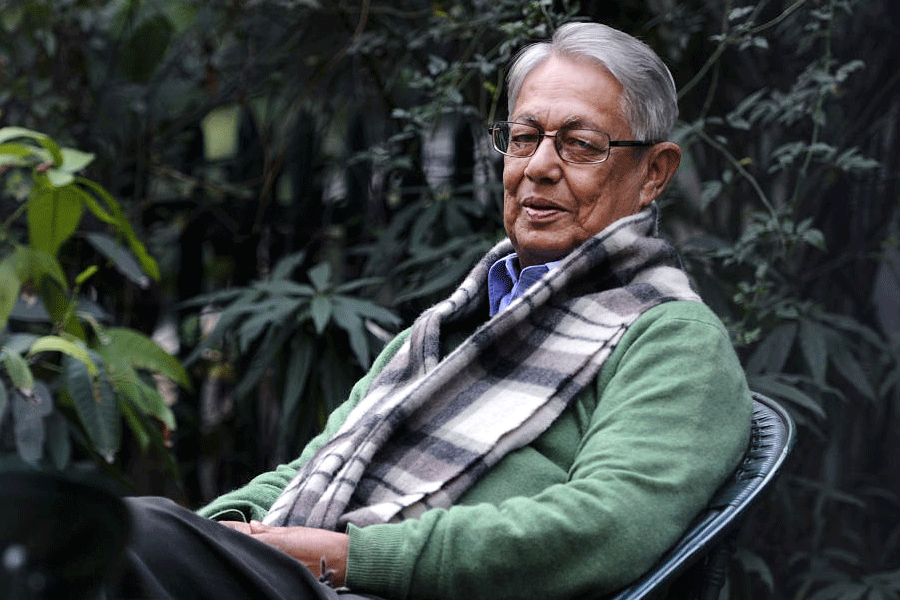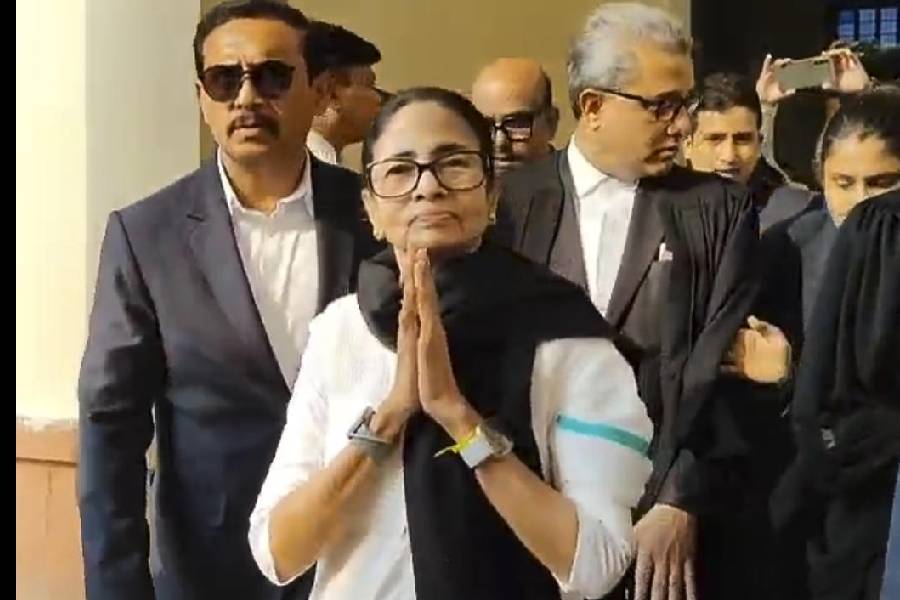A sound schooling system is important for children to understand the pluralistic idea of India, Nobel laureate Amartya Sen told a Calcutta audience on Thursday.
“Among things that can be learnt at school is to reflect on what India is like as a nation… why it was ready to give room to Jews and Christians and early Muslims and Parsis,” the economist said.
“Why is it that Indian literature, Indian architecture, Indian painting, Indian music, Indian dancing have so many collaborative features from different groups in India?”
“And what is happening to it right now? These are all threatened by the decline in schooling, whether brought about by Covid or fear of Covid or by anything else,” Sen added.
He was speaking at the Amartya Sen Research Centre, which opened its doors to the public on Thursday. The centre has been envisaged as the flagship institute of the Pratichi Trust, set up with Sen’s Nobel Prize award in 1999.
Sen was part of a panel that discussed the lessons learnt — with regard to schoolchildren — during the pandemic, and the attention areas during the resumption of offline classes.
His hour-long lecture spanned several subjects like tolerance, the cultivation of hate and the role of the judiciary. Excerpts:
Art of hate
“The lack of good schooling is terrible for science and education in general, for getting jobs and the cultivation of skills and all that. But it (schooling) is also important for what I believe is the biggest crisis that India is facing today. It is the possible collapse of the Indian nation. You may not think it has got anything to do with schooling but it has,” Sen said.
He quoted from a poem by Ogden Nash: “Any kiddie in school can love like a fool/ But hating, my boy, is an art.”
That art, Sen said, has been “cultivated” In India, on “an extraordinary scale”.
“Vilifying other groups of believers makes a country extremely vulnerable to cracking up. If somebody asks me, am I afraid of anything today, the answer is ‘yes’. The breakdown of the nation scares me,” he said.
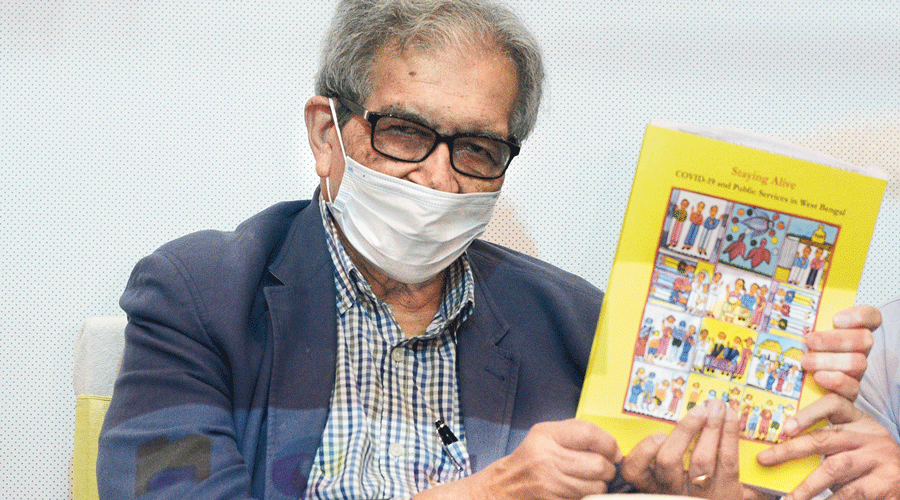
Amartrya Sen at the inauguration of the research centre named after him in Salt Lake on Thursday. Pradip Sanyal
Beyond tolerance
Mere tolerance is not enough to combat the divisions in the country, Sen said.
“If you have to take on the fragmentism that is threatening India today, it is important to be not just tolerant but working together. My maternal grandfather, Kshitimohan Sen (who taught in Santiniketan), called it jukto sadhona (working together) of Hindus and Muslims.”
He cited the example of Dara Shikoh, elder son of Shah Jahan and Mumtaz, to highlight this collaboration. “He learnt Sanskrit and translated the Upanishads --- the earliest translation of Sanskrit religious books in a foreign language. In this case, in Persian. From which came the German translation, the English translation and the French translation. The world came to know about the Upanishads because of a Muslim prince,” Sen said.
“I think interaction is very important. That is a lesson in general of the greatest importance in India today. So many of our achievements were created by Muslims. Taking the biggest figure of the religion, the Prophet, and trying to attack Him is an extraordinary piece of oddity with terrible effect on other people and our relation with the rest,” Sen said.
Role of judiciary
Sen spoke at length on the role of the judiciary during his lecture and during a media conference that followed the panel discussion.
“We have reason to be afraid if, despite the flashes of brilliance that we often see in the Indian judiciary, there may be cases of overlooking the danger of fragmentation. We are not in a position to lecture the judiciary. But the legislature and executive can take India in directions that people may not want,” Sen said.
“Judiciary is important in every country. It is exceptionally important in India because a good future of India depends on a balance between legislature, executive and judiciary. The way things are developing in India, that balance is not very prominent. The legislature itself, which depends on elections, could be in great difficulty depending on the art of election. Some of the groups seem unable to organise electoral politics. In such a situation, the judiciary becomes particularly important.”

